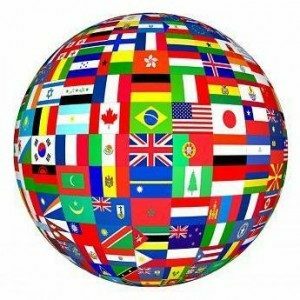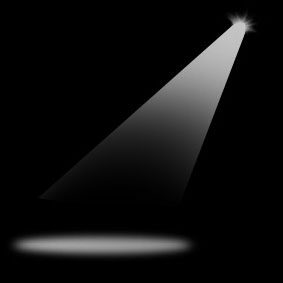Uses of Distilled Water
Chemistry / / July 04, 2021
The Distilled water is the result of subjecting the purified water to a distillation process. In the Distillation, is subjected to the water to a heat source. With the heat, it evaporates. The vapors, when rising, meet with condenser plates (sometimes they are inclined crystals) and when they transform into fresh liquid droplets, they are led to a collecting container.
In the collecting container you will find water with less salts than the one in the warm-up section. When the water evaporated, left behind the heavy salt particles, on the evaporation tray. This is the purpose of Water Distillation, to separate it as best as possible from the salts that are naturally included.
The Water Distillation efficiency it can be measured in a water sample from the final container. The sample is given a Electrical Conductivity measurement, with a device called Conductimeter. Knowing how much distilled water is capable of conducting electric current, it is known how much concentration of salts there is.
If the Electrical Conductivity is very small, it means that there are very few salts in the Distilled Water, and that the Distillation has been successful.
A water with very few salts (it is impossible to have 100% pure water) is very useful for many purposes in which the presence of salts is a hindrance.
Characteristics of Distilled Water
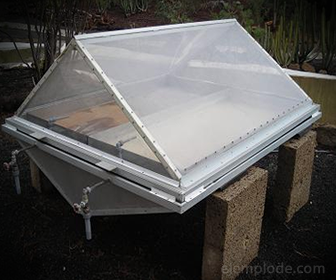
Distilled Water can even be considered more transparent than drinking water, since it does not contain the microscopic particles of salts that the latter carries.
It's found purer, and for this reason it is capable of dissolving or carrying salts with it with which you will find if you have contact with them.
His Boiling point is a lower temperature than water with more salts. Water with more salts must be heated more, because the salts retain more of the liquid particles.
Have a Hydrogen potential(pH) Neutral, generated by a good balance between its Hydrogen cations (H +) and its Oxhydryl anions (OH-).
Examples of Uses of Distilled Water
To Prepare Electrolyte Solutions: Since the concentration of salts ions is almost zero, the distilled water is free and with an extremely low conductivity. That is why it can receive salts in its constitution, dissolving them to prepare solutions.
The salts will dissociate into their ions, giving the liquid an electrical conductivity, and turning it into a Electrolyte. The electrical conductivity will be due almost entirely to the ions in the dissolved salt.
For washing Laboratory Materials: Due to its ability to dissolve substances, Distilled Water is used for cleaning Material of Laboratory, such as shakers, flasks, watch glasses, when preparing solutions Standard.
As an auxiliary supply in Laboratories: Distilled Water is present in Laboratories as an auxiliary fluid, either to prepare standard solutions, wash laboratory equipment and neutralize chemical spills, diluting them.
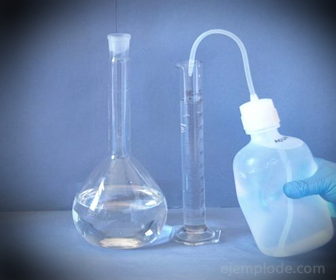
To Prepare Standard Solutions: Standard Solutions are homogeneous liquid mixtures made up of Distilled Water and a Substance, which can be an acid, a base, or a salt. They are called Standard because their concentrations are known Exactly, and they serve to make Volumetric Analysis, which investigates the concentration of a known substance in a show. Distilled Water, being almost 100% pure Water, allows us to assume that when mixed with acid, base or salt, the concentration of the solution will be completely due to this compound. There will be no more substances that intervene altering the Solution.
To Make Cleaning Supplies: To create cleaning liquids, the Distilled Water will be mixed with the raw materials. This ensures that there are no salts that interfere with the quality of the final product. There are times when the salts in regular Purified Water chemically interact with the ingredients of the cleaner, and this hinders the effect.
For Beauty and personal care items: There are times when the salts present in Natural Purified Water can behave abrasive when rubbed against the skin, at a microscopic level. That is why it is preferred to use Distilled Water in the preparation of personal care items and cosmetics that are in a liquid state. In addition, intruding salts are prevented from altering the chemical quality of the product.
For Medicinal Solutions and Healing Materials: Distilled Water is used to prepare solutions of Substances that help a quick healing of a wound. The Ethyl alcohol, prepared in 70% solution and with 0.0007% Denatonium Benzoate, it works as an Antiseptic and Disinfectant. The Peroxide It is a 3% Hydrogen Peroxide solution, and is used as an Antiseptic, helping to avoid wound infection.
As Washing Water in purification plants: The Distilled Water helps to decompress the treatment materials in the tertiary water treatment equipment, such as the Columns of Ion exchange resins, in which there is a Backwash stage, to recover the ability of the Resins to capture impurities in the Water.
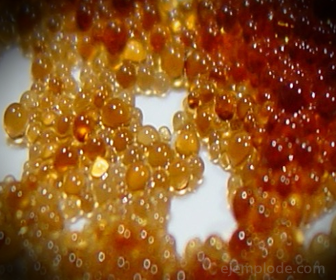
For conservation of biological material: If any biological material, such as a limb or organ, is to be preserved while it is installed in the body, a solution of Formaldehyde is prepared with Distilled Water, which will keep the material intact.
For food preservation: There are times when the food that will be consumed in the near future is submerged in Distilled Water to preserve it or to disinfect it. Both procedures become more effective: conservation, by not having contact with other substances that alter the food, and disinfectionSince adding a few drops of colloidal silver will make the food safe.

